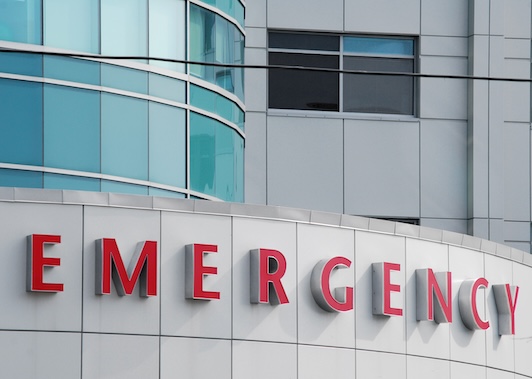People who initiate a premature or “before medically advised” (BMA) hospital discharge have a 10-fold increase in the risk of drug overdose in the following month, according to new research in CMAJ (Canadian Medical Association Journal).
Patients leave hospital prematurely for a range of reasons, including improperly treated pain, cravings, stress that accentuates psychiatric issues, conflicts with hospital staff, and restrictions on movement or visitors. Hospital patients who initiate a BMA discharge are up to three times more likely to die in the following year than people who undergo routine physician-advised discharge. “Before medically advised” discharge has also been called “patient-initiated” or “against medical advice” discharge.
“For a long time, front-line doctors and nurses have wondered if BMA discharge increases subsequent overdose risk,” says Dr. John Staples, study senior author and a clinical associate professor at the University of British Columbia in Vancouver, BC. “For patients with substance use disorder, a long hospital stay can sometimes be a period of drug abstinence, potentially reducing opioid tolerance and interrupting access to [addiction] treatments. After these patients leave hospital, persistent pain and untreated addiction might prompt heavier-than-usual drug use. All these factors can increase the risk of subsequent overdose.”
To understand the link between BMA discharge and drug overdose, researchers conducted a study that examined health data on 189 808 hospital admissions occurring between 2015 and 2019 in British Columbia, Canada. A total of 6440 (3.4%) of these admissions ended with patients leaving hospital against medical advice. They found that patients with a BMA discharge were more likely to be younger males with psychiatric illness, substance use disorder, or a history of illicit drug use. The rate of fatal or nonfatal illicit drug overdose in the first 30 days after departure from hospital was 10 times higher after BMA discharge than after physician-advised discharge. “Before medically advised” discharge was associated with subsequent overdose even after accounting for other risk factors for overdose.
“These findings indicate that patients initiating a BMA discharge are at high risk of overdose, that BMA discharge may be a causal contributor to subsequent overdose, and that patients initiating a BMA discharge (especially those with a history of substance use disorder) should be offered urgent clinical and social supports to reduce overdose-related harms,” write the authors.
They suggest there are opportunities to improve medical care for these patients.
“Hospitals and health systems should develop evidence-based protocols to prevent BMA discharge and should explore novel means of postdeparture outreach to reduce the risk of drug overdose after hospital discharge,” the authors advise.
“‘Before medically advised’ departure from hospital and subsequent drug overdose: a population-based cohort study” was published September 23, 2024.


